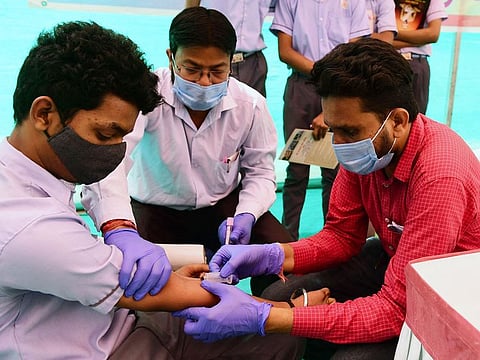H3N2 influenza virus spreads in India: What’s it and how to stay safe?
Seven deaths and more than 100 cases have been reported across the country

The H3N2 influenza is rapidly spreading in India. At least seven deaths have been reported, and more than 100 cases have been recorded in the country.
An 87-year-old man in the Hassan district of the southern state of Karnataka died on March 1 following an H3N2 infection. He had pre-existing conditions like hypertension, asthma and kidney injury. Another death was reported in Haryana. The death of a 58-year-old woman in Vadodara, Gujarat, on Tuesday is also attributed to the virus.
Reports said several children under the age of 5 have been admitted to the ICU in Pune hospitals. There is also an increase in elderly patients admitted to ICU in Delhi with viral pneumonia.
The drastic change in weather (from extreme cold to hot) is said to be driving the spread of infection. People have been advised to use masks in crowded places and during travel on public transport.
What is the H3N2 virus?
H3N2 is one of the virus strains that causes influenza. It is suspected to have evolved from influenza A subtype H2N2, which caused the 1957 pandemic. H3N2 gave rise to the 1968 flu pandemic, killing around one million people worldwide and nearly 100,000 in the United States.
What are the symptoms of H3N2 influenza?
Cough, fever, chills, nausea, vomiting, sore throat, diarrhoea, runny nose and continuous sneezing are common symptoms. In severe cases, the patient may experience chest discomfort, difficulty swallowing, and constant fever, according to the US Centres for Disease Control and Prevention.
How does the virus spread?
The H3N2 virus spreads from an infected person through droplets in the air or direct contact with virus-laden surfaces.
How long does the flu last?
An H3N2 infection generally lasts five to seven days; the fever should start dropping after three days. But the cough can continue for up to three weeks, according to the Indian Medical Association (IMA),
How dangerous is the H3N2 infection?
The severity of human illness caused by H3N2 is similar to seasonal flu, which can become a serious disease if complications like pneumonia develop. It also can lead to hospitalisation and even death, according to CDC.
Who is at higher risk of severe H3N2 illness?
People at higher risk of developing complications include children below 5 years, people above 65 years and older, pregnant women, and people with health conditions like asthma, diabetes, heart disease, weakened immune systems, and neurological or neurodevelopmental disorders.
Is there a treatment?
Antiviral drugs used to treat seasonal flu can be used against H3N2. Early treatment works best and is especially important for people with a higher-risk condition, CDC says on its website.
In India, health officials have warned against using antibiotics to treat the infection.
Is there a vaccine?
Preliminary clinical studies of an H3N2v vaccine are promising as they indicated a significant immune response.
Will the seasonal flu vaccine protect?
The seasonal flu vaccine will not protect against H3N2. But it protects against other seasonal influenza viruses, CDC says.
What are the preventive steps?
Sign up for the Daily Briefing
Get the latest news and updates straight to your inbox



